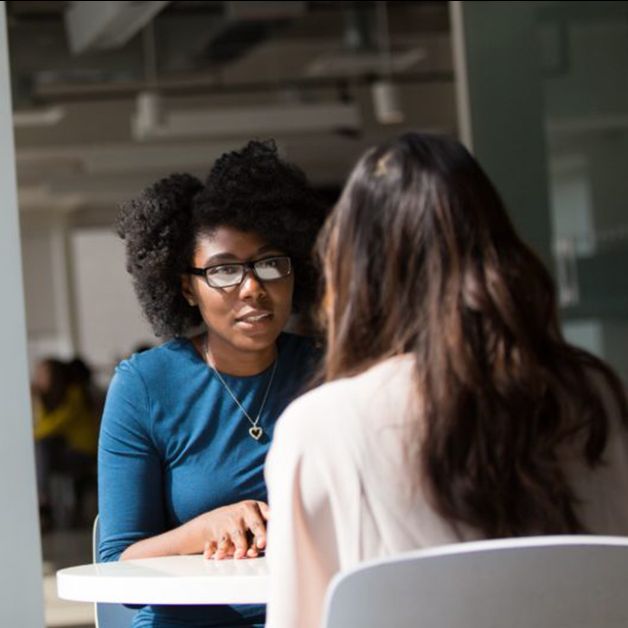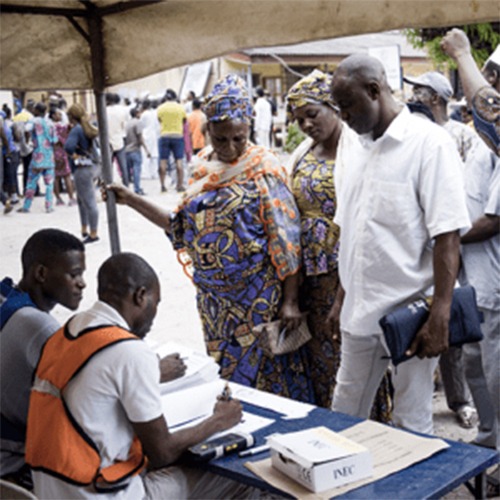Making Mental Health A Priority: Introducing Our Wellbeing First Aiders
Mahmoud Shehada (Senior Account Manager for Gaza) and Amel Eddiri (Account Manager for Libya) are two of six CTG Wellbeing First Aiders who are the first point of contact when our staff or consultants are going through a difficult time or dealing with a stressful situation. At CTG, we know that mental health is just as important as your physical health, and we are committed to providing our staff with a strong support network.
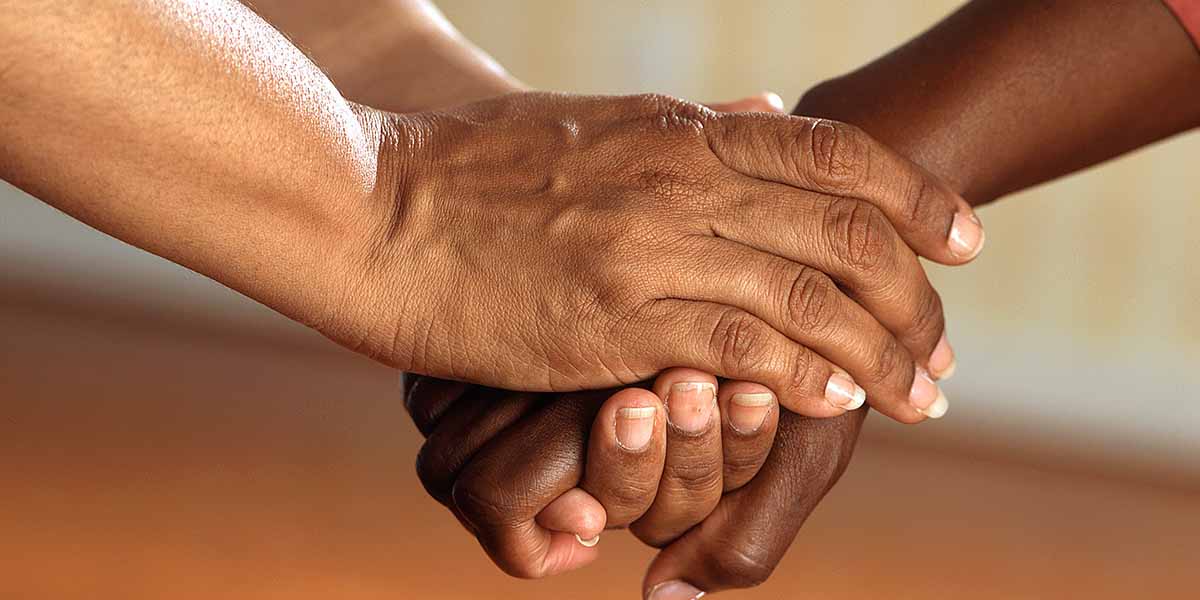
CTG Wellbeing offers two streams of support: our Wellbeing First Aiders are part of the CTG team, they are not professionals, but they have been trained to be a first point of contact, for those who are battling with stress or mental health challenges. We also offer online counselling, at no cost to our consultants, with professional counsellors experienced in the humanitarian context.
Here, Mahmoud and Amel share their experiences as Wellbeing First Aiders and the importance of wellness support as a humanitarian aid worker.
What prompted you to become one CTG’s Wellbeing First Aiders?
Amel: When it comes to mental health support, first you need to gently show the person who is struggling that support is easily available. Talking about an issue is the first step towards healing. I knew that I could provide that support.
Mahmoud: I’m proud to be one of the Wellbeing First Aiders and that I now have the tools to help colleagues and friends. I’ve got a renewed sense of purpose and passion for supporting people with their mental health. It has opened a lot of doors for me, including the opportunity to educate my community about mental health. To be a Wellbeing First Aider allows you to learn kind ways to listen, how to approach people, and how to assess a situation for safety.
Why is a wellbeing programme for consultants working in places like Libya and Gaza so important?
Amel: These two locations are facing serious social, economic, and political crises. The majority of our consultants are local and live in difficult conditions; they experience daily challenges when it comes to accessing electricity, the internet, food, and being able to move from A to B.
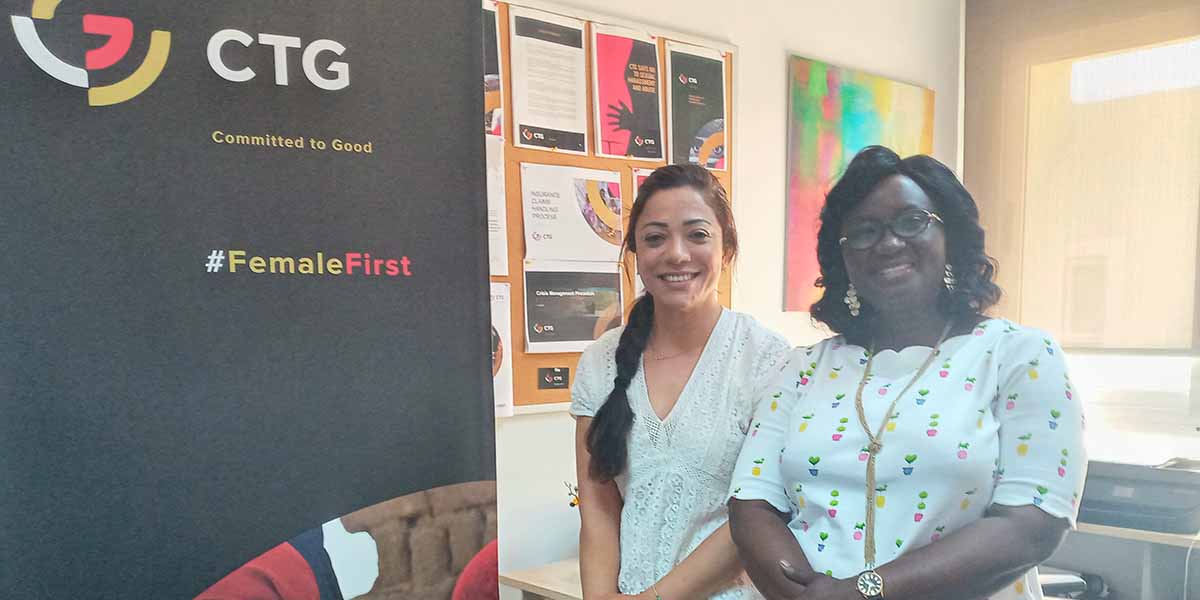
Amel Eddiri supports the field team and is based out of CTG Libya
Mahmoud: During my last 13 years living in Gaza, the population has been through four wars which has directly affected psychological behaviours. We can say one in 10 Gazans has a psychological disorder, yet many are reluctant to seek help or simply don’t know where to turn for care. Even when the friends and family of someone who may be developing a mental illness recognise that something is amiss, they may not know how to intervene or direct the person to proper treatment. All too often, those in need of mental health services do not receive it until it is too late.
Should mental wellness and wellbeing be prioritised in the humanitarian sector?
Amel: A big yes, because when you work on humanitarian projects it is not just physical effort, but your emotions and sprit become involved too. You’re not just physically tired, but can become psychologically drained as well.
Mahmoud: Absolutely, yes. Humanitarians and in-country aid workers face very challenging situations on a daily basis and it’s not uncommon for them to be under mental strain from stress or trauma. Working for long hours in extreme environments can remove us from our usual support networks. It’s also important for those on deployment to recognise the signs in colleagues. This could be through absenteeism, presenteeism, overconsumption of alcohol, or changes in eating habits. Sometimes symptoms can occur when you have stopped working after a deployment. Feeling disconnected from friends and family or guilt as to the relative comfort of your home are all completely understandable. If any of this sounds familiar please reach out to us for support.
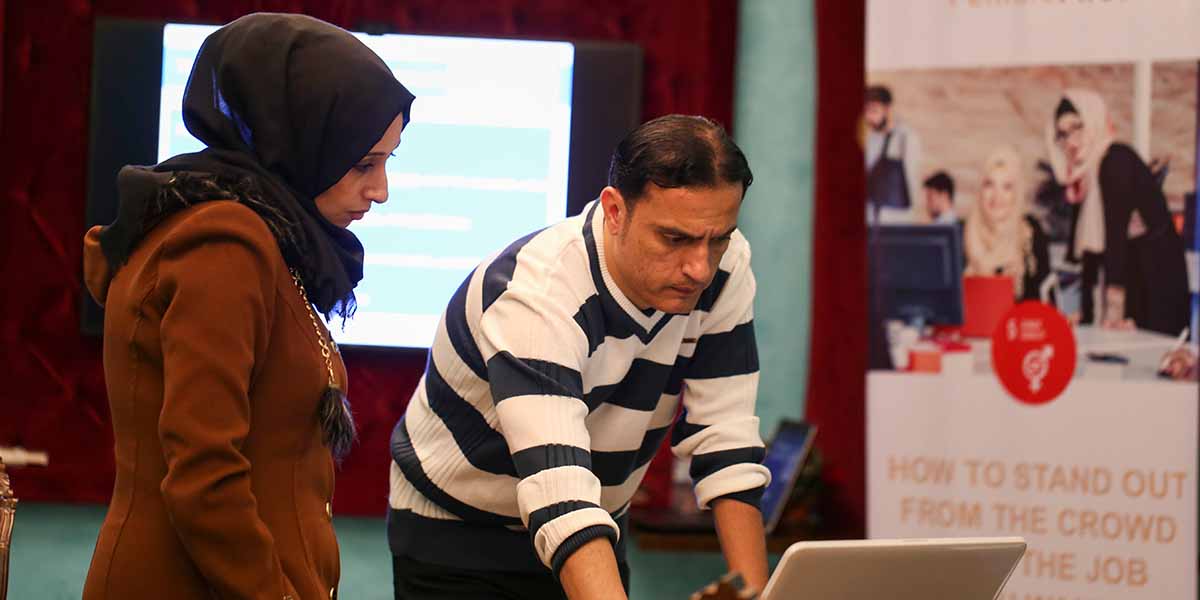
Mahmoud Shehada, a CTG Wellbeing First Aider based in Gaza
In your experience, do people accept help with their mental wellbeing easily in this field/sector? And why do you think this is?
Amel: I think it’s a matter of culture. In my experience, Arabic people step away from mental health support even though it is a culture where people are very expressive, extroverted and share their feelings – I think this is only when they feel safe and are in familiar settings. This is why the Wellbeing First Aider programme is such a good approach because you choose who you speak to, and many of us are from similar backgrounds – we know the daily situations that our staff face. We’re not removed from their realities. We have experienced it too.
Mahmoud: More than 70% of people with mental illness receive no treatment from healthcare staff, and some of that must be because people are reluctant to seek help. Evidence suggests that factors increasing the likelihood of treatment avoidance or delay before presenting for care include: lack of knowledge to identify features of mental illnesses, ignorance about how to access treatment, prejudice against people who have a mental illness and the expectation of discrimination against people diagnosed with mental illness. That’s why we want to make the route to getting help as simple as possible. Mail us, reach out to us on WhatsApp. That is your first simple step.
What are some of the stressors that you have experienced in your work?
Amel: I’ve had the same experience others have when living and working in areas affected by crises. The simple things so many take for granted – electricity, internet, freedom of movement, easy access to food and fuel – become massive challenges. And these challenges do not occur now and then, they are daily challenges. People who do not live in these situations try to understand, but how can they?
Mahmoud: Sources of stress for me may include witnessing human suffering, risk of personal harm, intense workloads, life-and-death decisions, and separation from family. And sometimes feeling like a failure, because it can feel like nothing you’re doing is helping.
What are some tips you could share from your own experience working under high stress and in a high-risk area?
Amel: To accept your life, to survive not only by resisting but also by realising that you can make your life better, and to be thankful.
Mahmoud: I take deep breaths, stretch, or meditate. I try to eat healthy, well-balanced meals. Exercise regularly and get plenty of sleep. And reach out to someone like a Wellbeing First Aider when you realise you are not coping.
TO REACH OUT TO A CTG WELLBEING FIRST AIDER, FIND THEIR CONTACT DETAILS HERE.

